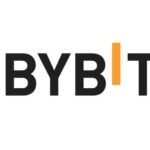The global adoption of blockchain technology by election officials has not yet kept pace with the hype surrounding it.
The challenges were outlined by Pete Martin, the founder and CEO of Votem, a business that provides blockchain- and biometric-based voting solutions: “No matter how well you do, someone can always shout ‘fraud,’ which discourages people from trusting new systems.” As of right now, no state or local government is utilizing Martin’s business’s technology for the 2024 U.S. presidential election. The company allows voters to cast ballots using a smartphone and securely saves votes on a blockchain.
Votem’s Novel Approach to Voting
Votem created a patented technology that lets voters use a smartphone to cast their ballots, and the votes are anonymously recorded on a blockchain ledger. Even though Votem promises more security and inclusivity, it hasn’t been widely used yet. For businesses such as Votem, the electronic voting system industry, which is expected to reach $1.7 billion by 2030, is still an attractive but unattainable target.
Votem temporarily tested their technology in 2016 in Montana and Washington, DC, and saw some success in elections involving the corporate sector. Even the Rock and Roll Hall of Fame used Votem’s approach after voting procedures became problematic. Notwithstanding these early achievements, the business encountered difficulties growing, particularly with municipalities.
Beliefs and Mistrusts Regarding Blockchain Voting
The distrust that surrounds blockchain technology is one of the primary obstacles to blockchain voting. Martin remarked, “People don’t trust software they can’t see,” noting that a majority of officials and voters still favor paper ballots over electronic ones. Votem’s blockchain-based technology has had trouble winning over voters and election officials to its dependability.
Comparable difficulties are faced by other businesses in the sector, such as Boston-based Voatz. Voatz is a mobile voting program that produces paper ballots at local government levels. Voatz has been utilized in over 130 elections for a variety of organizations, but it hasn’t yet made a significant impact in high-profile contests like the US presidential election.
The Difficulties of Blockchain in Election Security
Reports from reputable organizations, such as the National Academy of Sciences, Engineering, and Medicine, have voiced reservations about blockchain technology’s application in elections. In their 2018 report, Securing the Vote: Protecting American Democracy, they noted that although blockchain technology appears to be a viable solution, it falls short in addressing the fundamental security issues associated with elections. The research went so far as to say that blockchain might create more security flaws.
Blockchain versus paper voting
Regarding blockchain voting, one of the main points of controversy is how reliable paper ballots are thought to be. While many contend that paper ballots cannot be hacked, Martin argues that people with physical or visual impairments and absentee voters find paper votes difficult to use. The author highlights the possibilities for safe digital voting systems by drawing parallels with other secure online activities such as tax filings and banking.
Votem’s Prospects for the Voting Industry
Martin predicts that it will take another ten years for mobile voting to become widely used. “We joke that mobile voting is always 10 years away—and we’ve been saying that for 20 years,” he said. FastPass voting, a hybrid method that enables voters to mark votes on their phones and then print them at polling places using a QR code, has replaced Votem. This approach streamlines the voting process and ensures a paper record by combining the advantages of digital and paper ballots.
Votem intends to expand the use of FastPass voting by the 2026 midterm elections, which might pave the door for future widespread use of mobile voting.




























